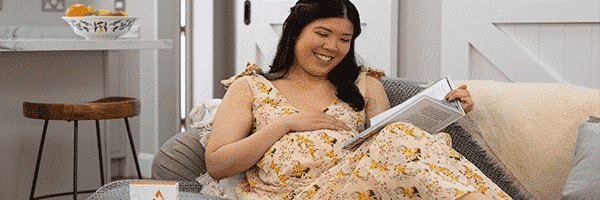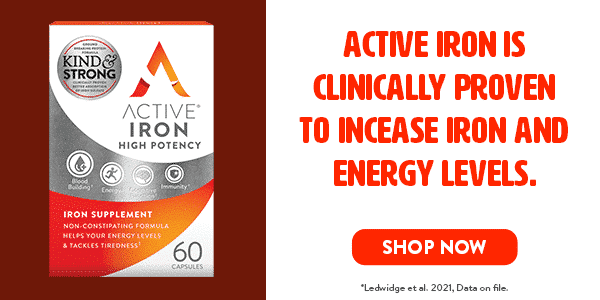Postpartum Guide from The Modern Midwife
● The postpartum period encompasses the time immediately after birth and extends to around six to eight weeks after birth. Yet I often say postpartum extends far beyond those early weeks. Looking after yourself postpartum is crucial because there is a window of opportunity to promote health with lasting impacts.
● There are a significant number of changes that take place in a short space of time. I will discuss the important needs for moms in postpartum and offer advice and guidance on ways you can make this period more manageable for yourself.
After Birth Care
- Physical Recovery: Pain management and episiotomy or C-section incision care will be monitored and follow up appointments will be made to ensure your recovery is progressing. If you do not feel like any wounds are healing, please speak to your midwife or doctor as soon as possible – infection delays recovery. Remember, every birth and recovery is unique.
- Rest and Recovery – Your body undergoes significant changes during pregnancy and birth. The postpartum period allows for the gradual healing of tissues and the return of organs to their pre- pregnancy state. It’s important to make sure you rest whenever you can, to help with this recovery process.
- Exercise and Activity – Starting with pelvic floor exercises! These should be done as early and often as possible. Next, gentle stretches, walks and then resume a fitness regime – if you had one. Do avoid putting too much pressure on yourself. You can only do what you can do, when you’re struggling to get a shower in – fitness is probably the last thing on your mind. But when you’re able to, try to factor in movement, exercise can improve ever so much from blood flow to your mood.
Emotional Needs and Mental Health – What do you Need Postpartum?
- Coping with Postpartum Emotions – Coping with postpartum emotions can be a challenging time. It’s normal to experience a range of emotions during this period, which can include joy, sadness, anxiety, and feelings of overwhelm. Most do come and go. If you notice they aren’t going or you’re feeling low for more than 2 weeks, it may be a sign that you need some more support with your mental health and it’s probably a good time to talk to a healthcare professional. They will be able to offer you the appropriate postpartum care and resources to help you through this challenging time.
There are many fantastic charities too, such as PANDA’s, Maternal Mental Health Alliance, Tommys and more.
Social and Practical Needs
- Balancing Responsibilities – It’s crucial to look after yourself too, both physically and mentally. Your needs matter too, self-care is not selfish.
- Time Management – Utilize time-saving strategies like batch cooking, using a baby carrier for hands-free activities, and setting up feeding stations with essentials within arm’s reach.
- Establishing a Support System – Make sure you do ask for help from your partner, family members, or close friends. They can assist with your postpartum needs – household chores, cooking, or caring for the baby. So many mums tell me they decline help or don’t want to ask and try to do it all themselves.
Postpartum Fatigue
Postpartum fatigue, also known as postpartum exhaustion or tiredness, is common among new mothers. It is characterized by feelings of extreme tiredness, physical and emotional exhaustion, or a general lack of energy. This fatigue can be caused by a combination of factors related to pregnancy, birth and the postpartum period. After birth, there is a postpartum hormone drop in estrogen and progesterone, contributing to feelings of fatigue and mood changes. Giving birth is a physically demanding process, and the body needs time to recover. ¹All mums bleed after birth and up to 41% have low iron. All of this can lead to feelings of tiredness and low mood. To further that, new-borns have irregular sleep patterns, and they often wake up frequently during the night to feed. Breastfeeding also requires a lot of energy and can often only be performed by mum as it’s being established. This can lead to significant sleep deprivation for new mothers. Adjusting to the demands of motherhood can cause stress and anxiety contributing to feelings of fatigue. Some medical conditions, such as anemia or thyroid disorders, can contribute to feelings of fatigue postpartum.
Having a support system in place can make a significant difference to your energy levels.

Postpartum Nutrition
After giving birth it’s essential to provide the best postpartum foods for recovery and to support breastfeeding if you choose to do so.
Here are Some Key Considerations for Postpartum Nutrition:
- Balanced Diet: Eating a balanced diet that includes a variety of nutrients is crucial. This should include a mix of carbohydrates, proteins, healthy fats, fruits, vegetables, and dairy or dairy alternatives. I often advise mums to ‘prep and freeze on mat leave’ so they have healthy, hearty meals in their freezer ready to pop in the oven.
- Iron: Many women experience some degree of iron deficiency or low iron levels postpartum, especially if there was significant blood loss during birth. Foods rich in iron include lean meats, beans, lentils, spinach, and fortified cereals. Supplementation is often a great way of ensuring you’re able to increase your iron intake.
- Hydration: Staying well-hydrated is crucial, especially when breastfeeding. Aim to drink 2.5-3 litres of water throughout the day.
- Take Pregnancy Vitamins: I recommend continuing to take pregnancy vitamins postpartum.
Supplements for Postpartum Mums
Iron postpartum is just as important as it is during pregnancy. Although iron requirements aren’t as much during the postpartum period, your iron levels may be low due to blood loss during labor or low iron levels during pregnancy. Between 10mg to 30mg of iron is
recommended during the postpartum period. Therefore, taking an iron supplement like Active Iron postpartum is likely to be beneficial.
The Importance of Iron Postpartum
It is important to choose an iron supplement postpartum that is well absorbed to avoid unnecessary and uncomfortable side effects such as constipation and diarrhea. Iron supplements are really safe to take during the postpartum period unless you have been advised otherwise. It is recommended to consult your healthcare provider for advice on the best suited supplements for you as some mums may need higher dose iron.
Active Iron Pregnancy Plus contains all the essential vitamins and minerals for pre, during and post pregnancy for the majority of mums.
Misconceptions About the Postpartum Period
The postpartum period duration technically lasts for six to eight weeks after birth, but many of the physical and emotional changes can continue well beyond this timeframe – so don’t put a timeline on it!
As well as postpartum depression there are lots of other mental health issues that can arise that are not as heavily talked about. Always ask for help if you’re struggling with your mental health, intrusive thoughts and so on. You’re not alone.
Breastfeeding does not always come naturally, and many women suffer challenges with this and need guidance.
Do not fall into the social pressure of ‘bouncing back’, it takes time for all women’s bodies to recover, focus on your unique journey, don’t push yourself with physical exercise too early. It is also totally normal to not feel joyful about being a parent the whole time, you’ll feel a wide range of emotions in this time. Try not to judge them!
Remember that every postpartum experience is unique, and it’s important to find a balance that works for you and your family. The postpartum needs for mum can be different; don’t be afraid to adjust your approach as needed and seek help when necessary. Just taking 5 minutes a day to yourself can help and it can look like telling your partner or a support person this “Can you take the baby downstairs and put the kettle on for me, I need 5 minutes alone.” Clear communication is key!
How to Take Care of yourself Postpartum and Activities Good for a Mother After Giving Birth
- Self-Care Rituals: Dedicate time to self-care activities like taking baths, practicing deep breathing exercises, a postnatal Pilates class, listening to audio books to escape or indulging in skincare routines to rejuvenate both physically and mentally.
- Social Connection: Spend time with friends or family members who offer support and understanding. Connecting with others can be a great source of emotional support during the postpartum period.
In conclusion, the postpartum period is a complex time that requires attention to physical, emotional, and social aspects of well-being. Nurturing a supportive environment, both personally and professionally, is vital to helping mums navigate this period successfully.
Additionally, recognizing and addressing mental health issues, fostering strong parent-infant bonds, and promoting self-care can all contribute to a positive postpartum experience.
Remember, be kind to yourself. You won’t get everything right, no one is perfect. Motherhood is a learning experience as much as anything else. Each day is a new day. You got this!

¹Accessed April 2021. Available at: www.rcog.org.uk/en/guidelines-research-services/audit-quality-improvement/each-baby-counts/reports-updates/


